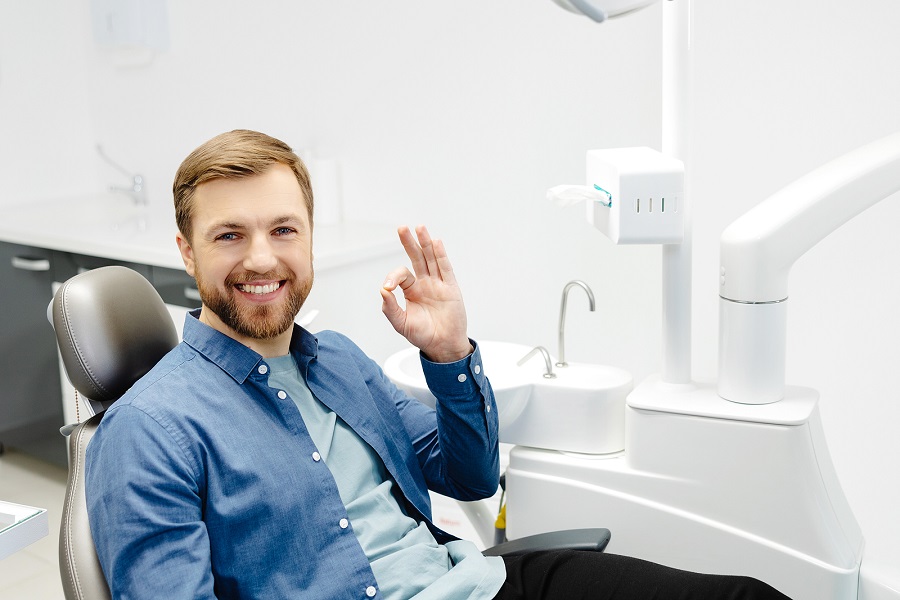![This is a thumbnail image of blog Ask a General Dentist: What Does Saliva Do for Our Mouths? This is a thumbnail image of blog Ask a General Dentist: What Does Saliva Do for Our Mouths?]()
Ask a General Dentist: What Does Saliva Do for Our Mouths?
May 16, 2023![Smile Makeover in Lake Forest, CA Smile Makeover in Lake Forest, CA]()
Transform Your Smile: The Power of a Smile Makeover
Mar 28, 2024![This is a thumbnail image of blog What Procedures Are Performed by a Laser Dentist? This is a thumbnail image of blog What Procedures Are Performed by a Laser Dentist?]()
What Procedures Are Performed by a Laser Dentist?
Jul 18, 2023![Same-Day Implants In Lake Forest, CA Same-Day Implants In Lake Forest, CA]()
Why Dental Implants Are A Game-Changer In Restorative Dentistry?
Sep 19, 2024![This is a thumbnail image of blog Achieve a Radiant Smile: Teeth Whitening in Lake Forest, CA This is a thumbnail image of blog Achieve a Radiant Smile: Teeth Whitening in Lake Forest, CA]()
Achieve a Radiant Smile: Teeth Whitening in Lake Forest, CA
Aug 02, 2024
EMAIL OR CALL: (949) 855-0176
- Patient Education
- Blogs
- Why Are My Gums Bleeding?
- Will I Need a Bone Graft for Dental Implants?
- Which is Better - Invisalign or Braces?
- When Is a Tooth Extraction Necessary?
- What Should I Do if I Chip My Tooth?
- What Do I Do if I Damage My Dentures?
- What Can I Do to Improve My Smile?
- Oral Hygiene Basics
- Oral Cancer Screening
- Options for Replacing Missing Teeth
- Improve Your Smile for Senior Pictures
- I Think My Gums Are Receding
- Do I Need a Root Canal?
- Do I Have Sleep Apnea?
- Reviews
- Contact

What Are Common Triggers of Dental Anxiety?
Are you one of those people who break into a cold sweat at the mere thought of visiting the dentist? Does the sound of that whirring drill send shivers down your spine? If so, you are not alone. Dental anxiety is a common phenomenon that affects millions of people worldwide. The triggers may vary from person to person, but the result is always the same: fear and unease when it comes to dental appointments.
What Are the Most Common Triggers of Dental Anxiety?
Dental anxiety is a common issue that many people face when it comes to visiting the dentist. It can be triggered by various factors, each unique to the individual experiencing it. One of the most common triggers is fear of pain. The thought of needles, drills, or any other dental instruments can cause immense distress for some individuals. Another trigger could be a previous negative experience at the dentist's office. Whether it was a painful procedure or feeling rushed and unheard, these experiences can create lasting anxiety and make future visits daunting.
Feeling out of control during dental procedures can also contribute to anxiety. Sitting in the dental chair with your mouth open while someone works on your teeth can leave you feeling vulnerable and helpless. The sound and smell of the dental office may also trigger anxiety for some people. The high-pitched whirring noise from dental equipment combined with the sterile smell often associated with medical environments can be overwhelming.
For others, it may be more psychological triggers such as embarrassment or self-consciousness about their oral health. This might stem from concerns about their appearance or judgment from the dentist. It's important to recognize these triggers so that steps can be taken to manage dental anxiety effectively. Communicating your fears and concerns with your dentist beforehand is crucial in establishing trust and finding ways to alleviate anxiety during appointments.
Establishing a calming routine before appointments, such as deep breathing exercises or listening to relaxing music, may help reduce anxiety levels. Some individuals find comfort in bringing along a trusted friend or family member for support during their visit. Remember, everyone's experience with dental anxiety is different - what triggers one person might not affect another at all! By identifying and addressing these triggers head-on, you're taking an important step toward overcoming your fears and maintaining good oral health.
How Can I Overcome My Dental Anxiety?
It's completely normal to feel anxious about going to the dentist. But don't worry; there are several strategies you can try to help overcome your dental anxiety.
Communication is key. Talk openly with your dentist about your fears and concerns. They are trained professionals who deal with anxious patients every day and will be able to provide reassurance and guidance throughout your visit. Another helpful technique is a distraction. Bring headphones and listen to calming music or an audiobook during your appointment. This can help take your mind off the sounds and sensations of dental procedures. Deep breathing exercises can also be effective in reducing anxiety. Practice slow, deep breaths before and during your appointment to promote relaxation.
Finding a trusted support person to accompany you to the dentist can make a big difference as well. Having someone familiar by your side can provide comfort and emotional support throughout the process. Consider exploring relaxation techniques such as meditation or visualization exercises that focus on positive outcomes during dental visits. Remember, overcoming dental anxiety takes time and patience. It's important not to rush yourself but rather take small steps towards feeling more comfortable in the dental chair.
Visit Nicole E. Kuske, DDS, at 22992 El Toro Rd, Lake Forest, CA, 92630, or call (949) 855-0176 for the best dental care tailored to your specific requirements.
Visit Our Office
Office Hours
- MON9:00 am - 3:00 pm
- TUE10:00 am - 7:00 pm
- WED - THU8:00 am - 5:00 pm
- FRIBy appointments only
- SAT - SUNClosed





comments